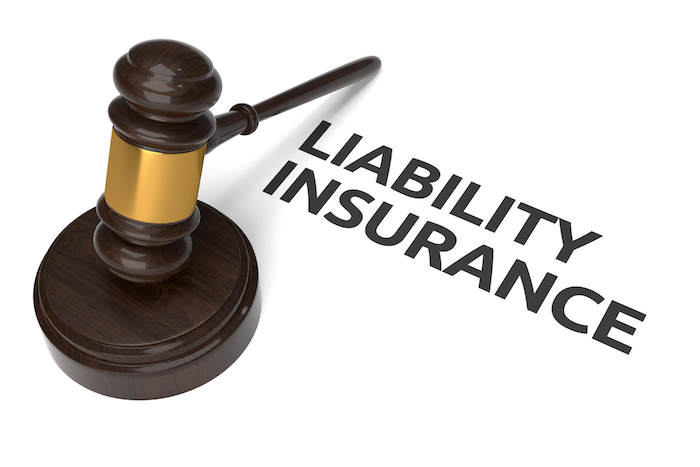Insurance is an essential aspect of financial planning, offering protection and peace of mind in the face of uncertainties. However, with a myriad of insurance policies available in the market, selecting the right one can be overwhelming. To ensure you make informed decisions regarding your insurance coverage, here are ten must-know tips for choosing the right insurance policy.
Introduction to Insurance Policies
What is insurance?
Insurance is a contract between an individual and an insurance company, wherein the individual pays premiums in exchange for financial protection against specified risks. These risks could include health-related expenses, property damage, liability, or loss of income.
Importance of choosing the right insurance policy
Selecting the appropriate insurance policy is crucial to ensure adequate coverage tailored to your needs. A well-chosen policy offers financial security during unforeseen events, safeguarding you and your family from potential financial hardships.
1. Assess Your Needs
Before diving into the world of insurance policies, it’s essential to assess your needs accurately. Consider factors such as your age, health status, financial obligations, and future goals. Determine the type and amount of coverage required to address potential risks effectively.
2. Research Different Types of Insurance
Insurance policies come in various forms, catering to different aspects of life. Some common types include:
- Life insurance: Provides financial support to your beneficiaries in the event of your death.
- Health insurance: Covers medical expenses, including hospitalization, surgeries, and prescriptions.
- Auto insurance: Protects against financial losses due to accidents, theft, or damage to your vehicle.
- Home insurance: Safeguards your home and belongings against damage or theft.
- Other specialized insurance: Such as disability insurance, travel insurance, or pet insurance.
Understanding the nuances of each type of insurance is crucial in making informed decisions.
3. Understand Policy Terms and Conditions
Before finalizing any insurance policy, thoroughly review its terms and conditions. Pay attention to:
- Coverage limits: The maximum amount the insurance company will pay for covered losses.
- Deductibles: The amount you’re responsible for paying out of pocket before insurance coverage kicks in.
- Exclusions: Situations or events not covered by the policy.
- Renewal terms: Conditions for renewing the policy and any potential changes in premiums.
Having a clear understanding of these aspects prevents unpleasant surprises in the event of a claim.
4. Compare Quotes from Different Providers
Shopping around and obtaining quotes from multiple insurance providers is essential for finding the best value. Utilize online comparison tools or consult with insurance agents to compare premiums, coverage options, and discounts offered by different companies.
5. Check the Company’s Reputation and Financial Stability
Choose an insurance company with a solid reputation and strong financial stability. Research customer reviews and ratings to gauge satisfaction levels. Additionally, consider checking financial strength ratings provided by independent agencies like A.M. Best and Moody’s.
6. Evaluate Customer Service
Prompt and reliable customer service is crucial when dealing with insurance matters. Assess the accessibility of the insurance company, responsiveness in handling inquiries, and efficiency in processing claims. A company with excellent customer service ensures a smooth and hassle-free experience during critical times.
7. Consider Additional Benefits
Inquire about additional benefits or optional riders offered by insurance companies. These may include coverage for specific risks not included in standard policies or discounts for bundling multiple policies. Evaluate whether these additional benefits align with your needs and budget.
8. Review the Claim Settlement Process
A transparent and efficient claim settlement process is paramount when choosing an insurance policy. Understand the procedures for filing claims, documentation requirements, and the company’s track record in honoring claims. A streamlined claims process ensures timely reimbursement and minimizes stress during challenging times.
9. Regularly Review and Update Your Policy
As life circumstances change, so do your insurance needs. Periodically review your policy to ensure it remains aligned with your current situation and goals. Adjust coverage levels or add riders as necessary to accommodate significant life events such as marriage, childbirth, or purchasing a new home.
In conclusion, selecting the right insurance policy requires careful consideration and research. By assessing your needs, researching different options, and evaluating key factors such as policy terms, company reputation, and customer service, you can make informed decisions that provide comprehensive coverage and financial protection for you and your loved ones.
FAQs (Frequently Asked Questions)
- How do I determine the right amount of coverage for my insurance policy?
The appropriate amount of coverage depends on various factors such as your financial obligations, lifestyle, and future goals. Consider consulting with a financial advisor to assess your needs accurately.
- Are there any ways to lower insurance premiums?
Yes, several strategies can help reduce insurance premiums, including bundling multiple policies, maintaining a good credit score, opting for a higher deductible, and taking advantage of available discounts.
- What should I do if my insurance needs change over time?
If your insurance needs evolve due to life events such as marriage, childbirth, or purchasing a new home, it’s essential to review and update your policy accordingly. Contact your insurance provider to discuss adjustments to your coverage.
- How can I ensure the insurance company I choose is reputable?
Researching customer reviews, checking financial strength ratings from independent agencies, and consulting with trusted sources such as friends or family members can help assess the reputation and reliability of an insurance company.
- What factors should I consider when comparing insurance quotes?
When comparing insurance quotes, consider factors such as coverage limits, deductibles, exclusions, additional benefits, customer service quality, and overall cost. Choose a policy that offers the best value and meets your specific needs.




